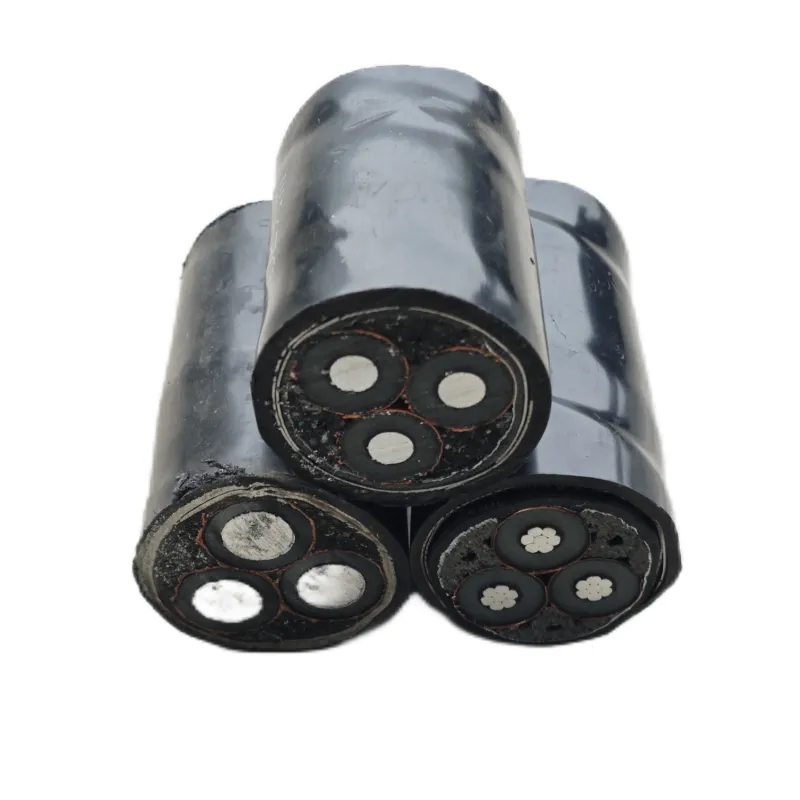Time: 2025-05-11 14:14:12 Source: Henan Province Jianyun Cable Co., Ltd.
Custom cables are electrical cables or assemblies designed and manufactured to meet the specific requirements of a project or application. Unlike standard, off-the-shelf cables, custom cables are tailored in terms of conductor size, insulation material, jacketing, shielding, length, and connectors to optimize performance, durability, and safety. They are used in diverse industries, including aerospace, industrial automation, telecommunications, medical devices, and data centers, where standard cables may fail to meet unique environmental, electrical, or mechanical demands. Similar to specialized cables like Teflon or PUR discussed previously, custom cables provide precision solutions for complex setups, such as 4-core control cables or high-voltage marine applications.

Custom cables are engineered to match the exact electrical, mechanical, and environmental needs of an application. For example, a data center may require 6 AWG copper cables with optimized gauges to minimize energy loss, while a medical device might need a multi-core PTFE-insulated cable for biocompatibility and flexibility. By specifying conductor materials (e.g., tinned copper), insulation (e.g., FEP), and shielding, custom cables ensure reliable signal transmission and power delivery, even in high-frequency or high-voltage systems. This precision reduces risks of signal loss or system failure, unlike generic cables that are designed for broad use.
Custom cables can be built with advanced materials to withstand extreme conditions, such as high temperatures, vibrations, or chemical exposure. For instance, cables with oil-resistant PUR jackets are ideal for heavy machinery, while armored cables with steel tape protect against abrasion in underground applications. In aerospace or marine settings, custom cables with PTFE insulation resist temperatures from -65°C to +260°C and corrosion, unlike standard PVC cables that degrade in such conditions. This durability extends service life and reduces replacement frequency, as seen in submarine cables with specialized protective layers.
While custom cables may have higher upfront costs, they offer significant long-term savings by reducing maintenance, downtime, and replacements. For example, standard cables in underwater applications often fail due to water ingress, requiring costly repairs. Custom cables with robust sheathing, like PUR or rubber, minimize such risks, saving on maintenance expenses. In data centers, custom power cables with precise lengths and gauges lower energy losses, reducing cooling costs by up to 10-15% compared to standard cables. These savings make custom cables a cost-effective choice for critical applications.
Custom cables are manufactured to exact specifications, eliminating excess material and ensuring a perfect fit. For example, a flat ribbon cable assembly for a compact computing device avoids the bulk of standard round cables, while custom lengths prevent redundant cabling in home theater systems. This precision reduces waste, simplifies installation, and creates cleaner setups with less clutter. Unlike standard cables, which may require trimming or coiling, custom cables optimize conductor size (e.g., 12 AWG for 20-30 amps) and stranding, minimizing material overuse and environmental impact.
Custom cables streamline installation by incorporating pre-terminated connectors, color-coded conductors, or labeled assemblies tailored to the project. For instance, a 4-core custom cable for industrial automation can include specific connectors to match equipment, reducing setup time. In complex applications like military systems, custom assemblies undergo rigorous testing (e.g., for continuity and insulation integrity), ensuring plug-and-play reliability. This contrasts with standard cables, which may require on-site modifications, increasing labor costs and error risks. Custom cables also ease maintenance by fitting seamlessly into existing systems, minimizing troubleshooting time.
Custom cables can be designed to meet stringent regulatory and industry standards, such as UL, RoHS, MIL-SPEC, or IEC, ensuring safety and compatibility. For medical applications, cables can use biocompatible materials like PFA, while fire-resistant cables for safety systems incorporate low-smoke, halogen-free (LSOH) materials. Custom manufacturers test cables for electrical parameters, temperature performance, and chemical resistance, guaranteeing compliance. This is critical in industries like aerospace or telecommunications, where non-compliant standard cables could lead to system failures or regulatory penalties.
Custom cables are available in single-core and multi-core configurations, tailored to specific needs, similar to Teflon, PUR, or MV cables discussed previously:
Unlike TFFN’s indoor limitations or LSOH’s fire-safety focus, custom cables combine application-specific features, such as PUR’s flexibility or Teflon’s heat resistance, for optimal performance.
Choosing between custom and standard cables depends on project requirements. The table below compares their key attributes:
| Feature | Custom Cables | Standard Cables |
|---|---|---|
| Design Flexibility | Highly customizable (materials, length, connectors) | Fixed designs for general use |
| Environmental Durability | Built for extreme conditions (e.g., -65°C to +260°C) | Limited to moderate conditions |
| Cost | Higher upfront, lower long-term costs | Lower upfront, higher maintenance |
| Installation | Pre-terminated, precise fit | May require modifications |
| Compliance | Meets specific standards (e.g., UL, MIL-SPEC) | General compliance, less tailored |
| Applications | Aerospace, medical, industrial automation | Residential, general-purpose wiring |
Note: Always verify project requirements with NEC or industry standards before selecting cables.
Ordering custom cables requires careful planning to ensure they meet your needs:
These steps ensure custom cables deliver optimal performance and safety.
Custom cables offer significant advantages over standard cables by providing tailored performance, enhanced durability, and long-term cost savings. Designed to meet specific electrical, environmental, and mechanical requirements, they excel in demanding applications like aerospace, industrial automation, and data centers. Benefits include precise fit, simplified installation, and compliance with industry standards, making them ideal for complex systems like 4-core control cables or high-voltage marine setups. By carefully selecting materials, such as PUR or PTFE insulation, and working with reputable manufacturers, you can ensure reliable, safe performance. Consult a professional electrician or engineer to design and install custom cables that meet your project’s unique needs, maximizing efficiency and longevity.